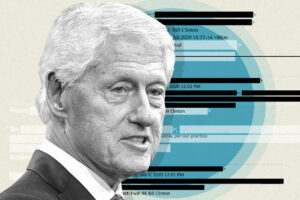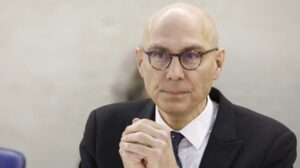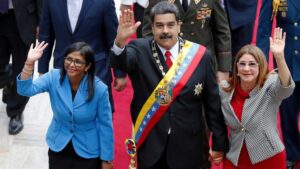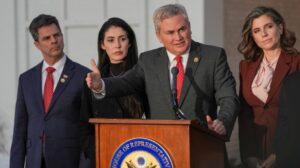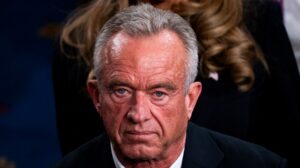Politics
Democrats can’t afford to laugh off RFK Jr.’s biggest appeal to voters
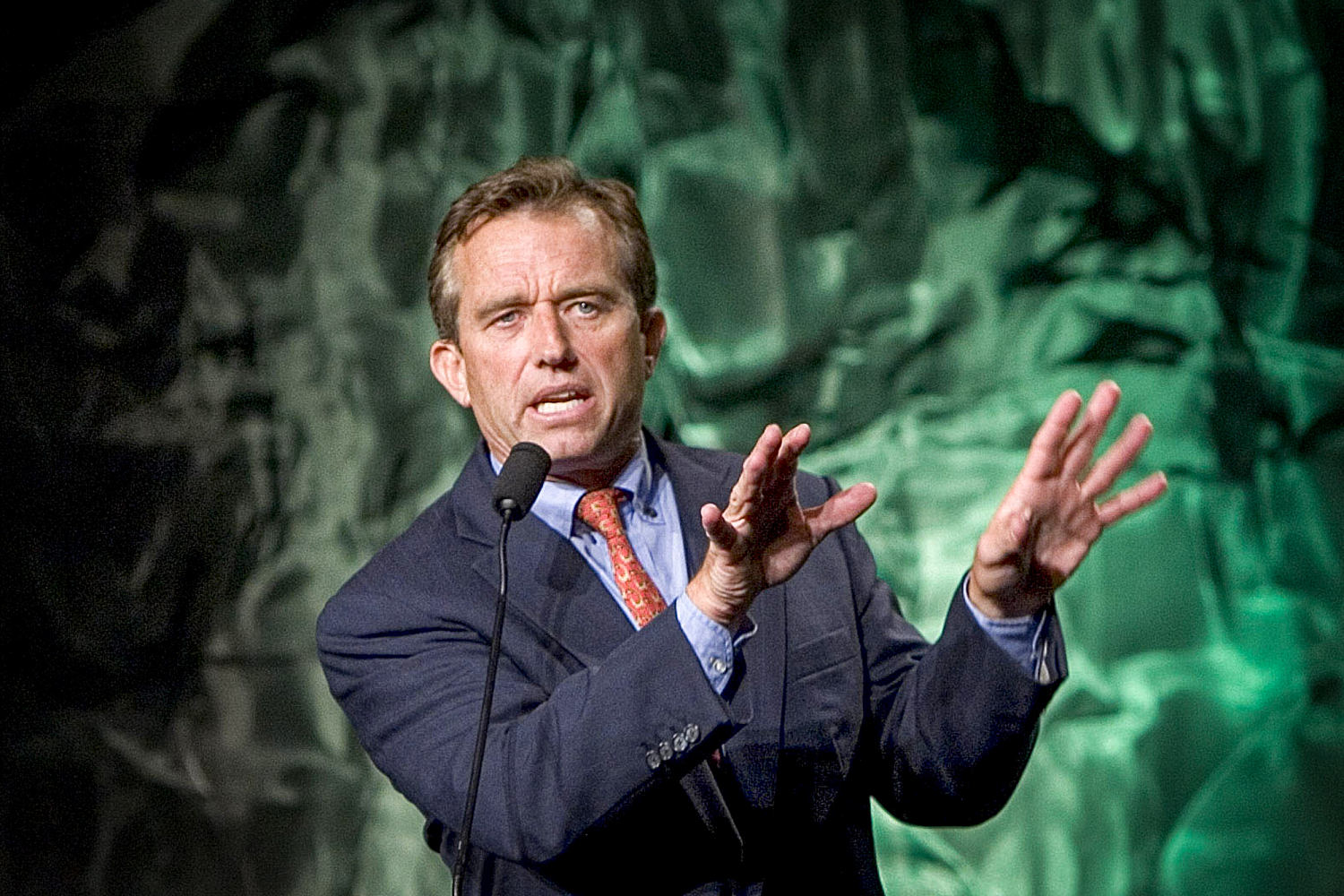
In the days since Robert F. Kennedy Jr. suspended his presidential campaign and endorsed Donald Trump, the former candidate has promised to provoke a “realignment” of environmental politics. While criticizing Democrats for “divisive” climate policies, Kennedy has made the case for environmental policies that could, he believes, “unite the nation,” including a focus on clean air and water, restoring the health of soils, and removing plastics, pesticides and toxic chemicals from supply chains.
There’s one problem with Kennedy’s vision for an environmental realignment: It rests on the electoral vehicle of Trump.
Recently, Kennedy won a vigorous endorsement for this so-called “Make America Healthy Again” agenda from Tucker Carlson in an interview that went viral last week. But there’s one problem with Kennedy’s vision for an environmental realignment: It rests on the electoral vehicle of Trump, who as president appointed profiteers from the plastics industry and Big Agriculture to key roles responsible for food and water safety, gave lobbyists from chemical companies a wish list of concessions, appointed Supreme Court justices who gutted government authority to regulate toxic substances, and now promises to cut government watchdogs and remove “forever chemicals” like PFAS from hazardous substance lists. And that’s to say nothing of his legacy on climate.
It’s easy enough for Democrats to laugh off Kennedy’s comments. Instead, they should make a serious play for his voters.
There’s a clear electoral case for doing so. While Kennedy’s support fell to roughly 5% in three-way matchups nationally after Vice President Kamala Harris entered the race, there was widespread evidencethat the third-party candidate was pulling more from Harris than from Trump. Although it’s hard to forecastwhether Kennedy will be able to persuade his supporters to vote for the Republican, even a single percentage point could be decisive in an election as close as this one. Look at Florida in 2000. Or any of the “blue wall” states in 2016.
Yet, there’s more at play here than swing state electoral math. Kennedy is seeking to give the Republicans something they haven’t had since the Nixon era: a way to claim the mantle of environmentalism. In an age of widespread distrust of big institutions, Kennedy is arguing that Americans can support the environment without supporting big-government climate policies. He is speaking directly to now-substantial wellness-focused demographic subgroups — organic moms, natural parenting advocates, fitness bros — who prioritize clean food, air and water but, especially since the pandemic, are leery of federal agencies and government authority.
So how should Democrats make the case to these voters?
Tell the truth. Drive home the message that Trump is the candidate of toxic chemicals.
While Trump has tried to distance himself from the Project 2025 blueprint, the key environment plans in the document were written by Trump appointees and match with his own promises to gut the “administrative state.” Project 2025 would remove the “hazardous substances” designation of PFAS chemicals — perfluoroalkyl and polyfluoroalkyl as well as related “forever chemicals.” Federal watchdogs finalized the classification of these substances in April, drawing on evidence that they present a serious threat to human health, including a range of cancers, cardiovascular disease, liver issues and fetal development issues. Extensive research demonstrates that such chemicals damage the functioning of the endocrine system and undercutmen’s testosterone and fertility levels, a fact that should concern Trump’s macho base. Project 2025 plans from Trump advisers moreover seek to eliminate the government’s authority to track Americans’ cumulative exposure to a wide range of toxic chemicals under the Toxic Substances Control Acta key defense against virtually all the toxic chemicals that Kennedy warns against.
Extensive research demonstrates that such chemicals damage the functioning of the endocrine system and undercut men’s testosterone and fertility levels, a fact that should concern Trump’s macho base.
To win would-be RFK Jr. voters, Democrats should also propose a proactive agenda on these issues. The Biden administration recently announceda new program to reduce single-use plastics in federal government operations, enhance plastics cleanup, strengthen regulations on toxic emissions from plastics, and modernize plastics recycling infrastructure. But Harris can go further. Her campaign should unveil a more comprehensive plan to counter PFAS and forever chemicals in the food system and supply chains.
Blockbuster reportingin The New York Times last week revealed how toxic sewage sludge with extremely high levels of PFAS and “forever chemicals” is being used to fertilize roughly 70 million acres of U.S. farmland and has been implicated in the deaths of livestock, not to mention untold risks to human health. The Times reported that the EPA has encouraged the use of these recycled biosoils in order to reduce the use of fertilizers made from fossil fuels. Harris could demonstrate her commitment to addressing toxic chemical threats and, in so doing, make a play for RFK Jr. voters by taking a stand to ensure that the government agencies no longer promote the use of such recycled fertilizers.
Trump — who recently promised the oil industrythat he would do anything it wants in exchange for a billion dollars for his campaign — has clear reasons to be beholden to the petrochemical industry as well as Big Ag and manufacturers of ultraprocessed foods. But Harris can and should welcome a fight with these interest groups.
In his interviewwith Carlson, Kennedy passionately declared that “the reason we protect the environment is because there’s a spiritual connection … there’s a love that we have. Our connection to the fish and the birds and the whales and the purple mountains majesty.” This, he argued, is what animated his campaign.
To seize an electoral opportunity, Democrats need to press the case: a vote for Trump is no way to express your love and commitment to Mother Nature.
Justin Talbot Zorn
Justin Talbot Zorn is senior adviser at the Center for Economic and Policy Research in Washington, D.C., a former senior congressional staffer, and author of a book on the politics of mindfulness. He’s written for the Washington Post,LA Times, New Republic, TIMEand other publications.
Politics
Serious investigation or ‘clown show’? Clintons’ closed testimonies on Epstein leave room for disagreement
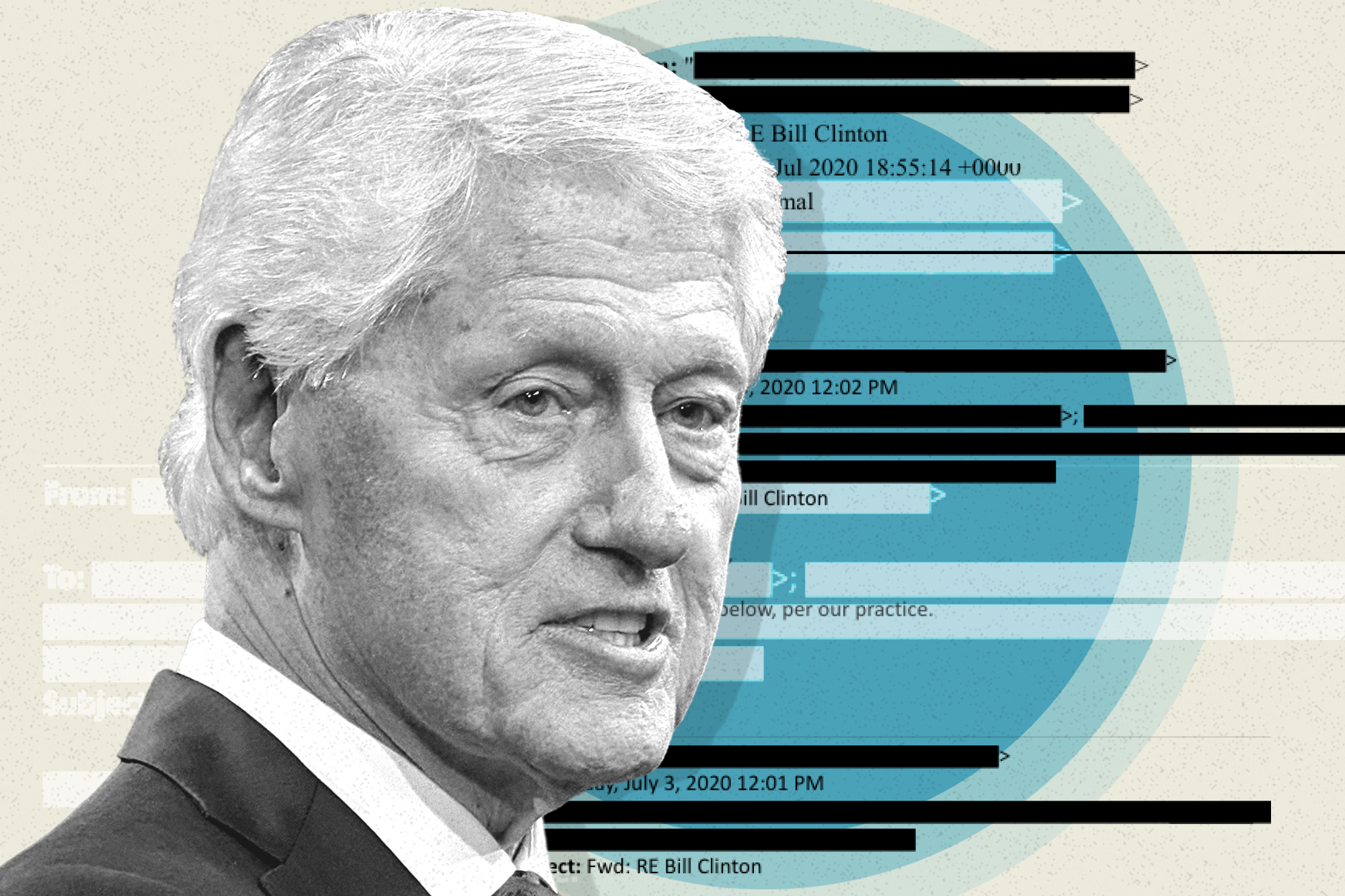
Democrats say the depositions pave the way for slapping Trump with a subpoena. Republicans say they point to his exoneration…
Read More
Politics
House Oversight chair: Bill Clinton punts question to committee on whether Trump should testify in Epstein probe
Former President Bill Clinton told members of the House Oversight and Government Reform Committee that it’s “for you to decide” whether to call up current President Donald Trump to testify in the panel’s Jeffrey Epstein investigation, Chair James Comer told reporters Friday. “[He] went on to say that…
Read More
Politics
FEMA taps billions for disasters, warning Democrats of ‘dire’ shutdown impact
The Trump administration spent more than half of the balance in the nation’s disaster relief fund this week, pointing to that dwindling aid as means to pressure Democrats into yielding in Department of Homeland Security funding negotiations. A FEMA spokesperson said Friday that the agency sent out more than $5 billion this week for recovery projects…
Read More
-

 The Dictatorship1 year ago
The Dictatorship1 year agoLuigi Mangione acknowledges public support in first official statement since arrest
-

 Politics1 year ago
Politics1 year agoFormer ‘Squad’ members launching ‘Bowman and Bush’ YouTube show
-

 Politics1 year ago
Politics1 year agoBlue Light News’s Editorial Director Ryan Hutchins speaks at Blue Light News’s 2025 Governors Summit
-

 The Dictatorship6 months ago
The Dictatorship6 months agoMike Johnson sums up the GOP’s arrogant position on military occupation with two words
-

 Politics1 year ago
Politics1 year agoFormer Kentucky AG Daniel Cameron launches Senate bid
-

 The Dictatorship1 year ago
The Dictatorship1 year agoPete Hegseth’s tenure at the Pentagon goes from bad to worse
-
Uncategorized1 year ago
Bob Good to step down as Freedom Caucus chair this week
-

 Politics10 months ago
Politics10 months agoDemocrat challenging Joni Ernst: I want to ‘tear down’ party, ‘build it back up’


